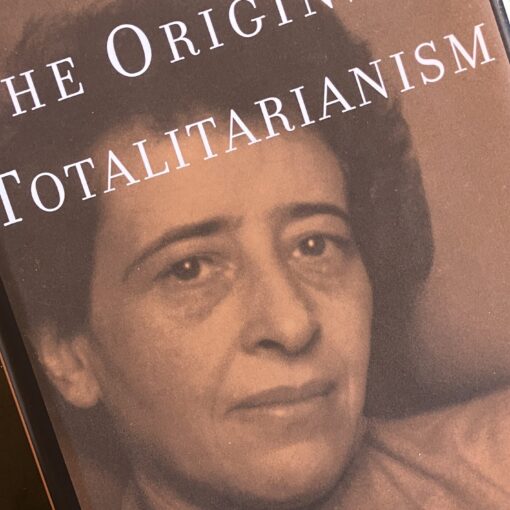
By Frieda Ekotto
The Love of our neighbor in all its fullness simply means being able to say to him-her-them. “What are you going through?”
— Simone Weil
What are you going through/Quel est ton tourment? This question appears in Attente de Dieu (Waiting for God), a series of letters and essays including many of Weil’s spiritual and religious thoughts. The writings were not originally intended to be published as a book and were collected posthumously, but Waiting for God is now considered a significant philosophical work. It explores the author’s criticisms of orthodox Catholicism, her belief in a natural balance between God and humanity (as opposed to a God who rules over humanity) and “sacred longing,” the idea that people are driven to look for beauty by their desire to connect with a higher power. Weil suggests that asking, “What are you going through?” is a way of loving one’s neighbor by acknowledging their suffering.
In his brilliant book, Simone Weil’s Political Philosophy: Field Notes from the Margins (2023), Benjamin Davis reads Simone Weil as an important political philosopher. Weil was one of the first thinkers of European descent to call into question her own country’s colonial practices. Clearly, many intellectuals have done the same, however, they do not acknowledge that Weil was the first to do so. For interrogating her culture and society on those anti-colonial grounds, many dismissed her as crazy. Many also dismissed her by focusing on her strange practices of eating and dressing. Ben shows that, if we focus on reading Weil, for the depth of her thinking—that is, if we read Weil as a political philosopher—then we can get a sense of the insights that she offers us. Those insights include: (1) a concern that Western societies have raised their nations to the level of Gods as objects of worship; (2) a method that involves living with workers and those marginalized and exiled if we are truly to understand the modern categories we live under, such as citizen, democracy, fascism, revolution, and exile; and (3) an adamant belief that philosophy should be understood as a way of life, as something that we practice in how we dress, eat, write, speak, and treat one another.
For Weil, marginal positions invite invention and exploration. Operating at the edges of culture, and in its cracks, marginal activities can develop independently, eluding surveillance and policing. As the African American theorist bell hooks has written of marginality, it is “much more than a site of deprivation… it is the site of radical possibility, a space of resistance.” It should come as no surprise that Weil chose to operate in such cultural margin-metaphorically, materially, politically—and that her work is situated in these spaces. Weil’s work was not only prescient in terms of rhetoric but has also played an influential role in the cultural and social scene. Politics cannot be subtracted from rhetoric.
Ethics is the inevitable philosophical problem to which we return when we ask ourselves that other inevitable problem, that of Being. Because one wants to be human, because all life wants to be. The concern of being precisely to be, admirably formulated by Heidegger, is one of the features that has always been noted in Being. This desire to persevere in Being. Here, Weil moves to understand damage in other’s life. Like a flying fish, the interpreter breaks through the sea of damage and confusion in a flight of insight. Thinking now moves to change a concrete situation, then arcs back into the fluid field to pick up new signs of damage. A concern for life must be sensitive to novel signs of damage, try to understand how damage occurs in and through social organization, and move to transform inert social structures into organization which frees and enhances life.
It is not as though signs of damage otherwise go unread, however. Those who experience damage most directly are compelled to add another layer to their situation. Damage may be given some “meaning”, connected to some source : suffering may be read as “our lot” in “this fallen world”. Damage is seen as the work of a demon, of “radical evil” of a cruel persecutor, of a rigid, impenetrable institution, of the “Other which is also myself”. Or, an act may be interpreted as the release of an aggression instinct. All of these readings have a tendency to preserve the situation, however : they allow damage to be repeated by identifying it with some more or less untouchable “substance”, whether natural, social or spiritual. As the situation unfolds, as damage is lived, it may be salved with such conservative readings. There are some situations where damage may indeed be healed by a transcendent movement often called “ethical.”
Moving towards an ideal of “solidarity” as “co-responsibility” (each for all, all for each) we have had to pass over sympathy as the revelation of “equality”, and love as the heightening of another person’s value. Both of these experiences obscure the fact of damage in the world when they are glorified as the bases of “ethical life.” Up to this point, we have seen some situations where damage has occured and discovered where both diagnoses of pathogens and prescribed antidotes fail to transform the situation. We have been left with the conservative belief that the pharmakon can be both disease and cure, that unanimity outweighs the “minus-one.” [cf. to Sartre, Fanon — creation of new human through violence vs. inert oppression]. Until we began to map out some broader patterns of social life, it will be impossible to see what movement toward the ideal of global solidarity, with its demand for the coresponsibility of each for all and all for each, will have to overcome.
My understanding of Weil’s work remains concrete. She was very serious about the question of solidarity with workers, her work in factories, and her volunteering in the Spanish Civil War, as well as her general philosophical and practical bent toward cooperation. For Weil solidarity means the willingness to tie one’s life with the life of the others, recognizing in so doing a kind of mutual debt—the fact that we owe something to one another. Here, it is a kind of original debt that connects us, which we are interpellated to address and we cannot wait. It is urgent, it has to be done in pursuit of life, with the purpose of extending bonds of life and bonds of gain and bonds of mutual protection and reciprocity. That is how I understand the concept of solidarity in Weil’s work. Weil makes a point about the history of resistance and struggle, a history of hope and a history of possibility.
Radical solidarity in Weil’s work demands that we asked ourselves: do we have some specific role to play in unfolding the history of the world? What is it? What is our responsibility vis-à-vis it? This is the privileged field of philosophical expression. At the center of her work is the concern for Others.
All these crises and movements are challenging for human existence. For Weil, these crises were something absolutely fundamental and serious. It seems that the ways in which we formed societies, the ways in which we make culture. We can thank Weil for expounding so powerfully, so intensely, the importance of the survival factor, survival of humanity and the special role she plaid in those crises.
For Weil there was also in the human being the possibility of caring for another, of being for another. It’s a very simple idea, and one that could be likened to altruism if altruism weren’t constantly reconciled with selfishness. To put it another way, Weil realized that another human’s death can take precedence over her own, i.e. that another human’s death can be a problem for her that precedes her own death. How insane is that? After all, is this any of her business? Yes, it is; everything that’s not her business is, in fact, her business.
So, one can understand why the first thing that manifests itself in others is the gaze. Why it is in this way that others are, in relation to her, first and foremost what is absolutely naked, the very bare. Why, from the outset, Weil offers herself to destruction, because it’s tempting to destroy that which is weak. Her responsibility towards the other is the first response, the first language. But if she is caught up in her responsibility towards others, from the outset, from the moment of encounter, don’t she risks being handed over to the other? To give up my freedom?
I think if one is caught up in responsibility for others, from the outset, from the moment of encounter, don’t we risk being handed over to the other? To give up freedom? It’s an interesting question to ask. And I’ll answer it as follows: freedom isn’t the fact that no one gives me orders, nor is it the negation of external constraint. The condition of my freedom is the fact of my decision. I am the only one to whom this responsibility has been entrusted, and no one else can carry it out for me.
Weil clearly understood that for the most vulnerable among us there is a great deal at stake, and silence in the face of all this injustice is not acceptable.
Ethics still presupposes a supplement. There’s me, there’s the other… and there’s the third. And the third of billions. All the more reason to be wary of love, of its propensity for exclusivism, which often leads us to forget the third party, to forget the world. But the third party is there, and we don’t know what he’s doing to the other. If it does something to me, that’s fine: I can’t protest, it’s my other, my neighbor. But what he does to the other… That’s why I say we have to add to the ethics of others, to this priority given to others, the necessity of a comparison. And that’s terrible, it’s terrible, it’s scandalous: to compare the incomparable, what is unique! And yet we must. Objectivity and knowledge begin there, and so does justice since it is founded precisely in the objectified. Justice is born to dispel the dilemma of life.
***
Notes for my research: In reading Weil, I noted that this sentence J’ai honte de mon pays is also what Jean Genet says about his country France. Genet’s hate for France and its colonial past was already in Weil’s work. I see so many ideas from Weil’s in Maurice Blanchot’s La communauté inavouable. I am grateful for this invitation to read Weil’s work again.
Note
Frieda Ekotto is the Lorna Goodison Collegiate Professor of Afroamerican and African Studies, Comparative Literature and Francophone Studies at the University of Michigan. Ekotto is the President of Modern Languages Association (2023-2024).




